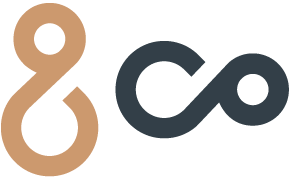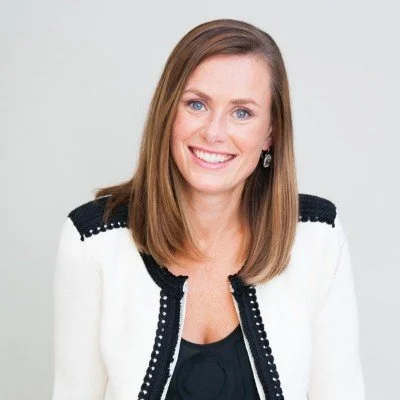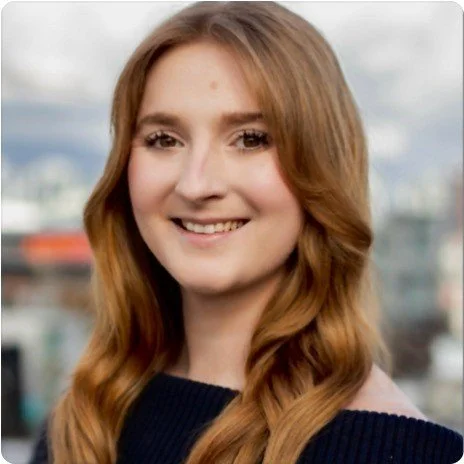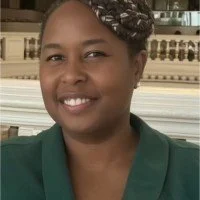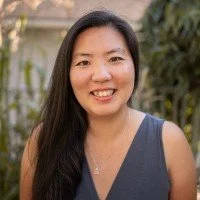Celebrating the Women of And-Co: Leaders, Innovators & Change-Makers
At And-Co, we are proud to be surrounded by inspiring women who are driving change, innovation, and leadership across industries. As we celebrate International Women’s Day, we’re spotlighting four remarkable members of our community who are making an impact in entertainment, technology, policy, and entrepreneurship.
Lena Lees-Heidt
Founding Partner,
Play Management Inc.
Tell us about yourself and your business.
I am a founding partner at Play Management, a company operating within the entertainment industry where we represent actors, directors, writers, and other creatives. We are a female-owned and operated business with offices in Vancouver, Toronto, and Atlanta.
How are women driving change and innovation in your industry?
Women have always had a tremendous impact on the entertainment industry, both on and off the screen. The brave women who came forward during the #MeToo movement brought the issue of equality into the mainstream across all industries.
While we’ve seen women portray incredible characters on screen, and I’ve personally encountered many female change-makers behind the camera, it feels as though women's voices are now being truly heard and supported. It’s an exciting time to forge new paths and work in an industry that can have a meaningful impact on generations to come.
How do you support other women in your business?
Our team is composed of 83% women, and we’re also proud supporters of GEMS (the Gender Equity in Media Society Vancouver), formerly known as Women in Film and Television, where I served on the board for two years. Mentorship is a huge focus within our company, and we are committed to helping young talent navigate the industry in a healthy, safe, and fun way. Watching these young performers find their voice, confidence, and strength brings me a lot of joy.
As a company, giving back to the community is a priority. For the past three years, we have partnered with the local chapter of Mamas for Mamas to host an annual fundraiser. Mamas for Mamas is a national charitable organization that supports mothers and caregivers in crisis by providing ongoing assistance to individuals and families facing poverty-related challenges.
Personally, I also served on the advisory committee for the inaugural year of the “Women at the Top” program, hosted by the Whistler Film Festival. This invite-only gathering on Whistler Mountain celebrates women in leadership. In our first year, we partnered with the Geena Davis Institute and held summits in Vancouver and Whistler, focusing on the impact of media on younger generations.
What is your vision for the future of women in your industry?
I love seeing the outpouring of support as women extend a hand out and a hand up. As a mother of a young daughter, I want her to have role models—public figures, mentors, and teachers—who inspire growth, change, respect, and dedication. I hope people from all backgrounds can turn to media for inspiration, and our company will continue to do our part to make that a reality.
Erin Clazie
vp of Revenue,
sitemate
Tell us about yourself and your business.
Sitemate builds best-in-class software platforms for what we call the 'built world' - serving core verticals like Civil and Building Construction, Infrastructure, and Energy/Renewables, to improve project delivery through no-code tools. Our mission is to enable the human race to build roads, bridges and buildings faster than we build software.
After a four year tenure in the Fintech industry, I moved to Sitemate and now lead our Revenue function, comprising of GTM Operations, Revenue Operations, Solutions Engineering, GTM Strategy, and Customer Success Operations. My teams are the supportive functions that build infrastructure to enable the GTM team to do their best work, and provide insights for GTM leadership in their decision-making as we scale.
How are women driving change and innovation in your industry?
I am proud to work with a diverse group of talented people from all corners of the world. Sitemate's global team represents 22 countries, whilst also being 50% female. Interestingly enough, when you plot the increase of female staff over time, our trend to a 50% female workforce is directly correlated with our revenue growth and inflection over time. This is particularly interesting when you consider Construction Tech (ConTech) is a convergence of two historically male-dominated industries.
In our client's industries, women are increasingly driving change and innovation, reshaping them with new insights, leadership, and technological advancements. Their impact can be seen across multiple areas, whether that's breaking barriers into executive roles, driving digitization and automation to improve safety, efficiency, and sustainability on projects, or advocating for more opportunities for women in construction via mentorship, training, and support programs. At Sitemate, some of our very best GTM leaders, salespeople, customer success managers, and engineers are women solving big problems for our clients in the heavy industries, and in turn directly driving these industry changes.
The built world has operated with outdated/legacy workflows for some time, and is currently undergoing a massive shift - I truly believe when driving these changes, women are uniquely positioned to challenge the status quo through completely fresh perspectives. Diversity of thought on teams breeds innovation.
What is your vision for the future of women in your industry?
A 50% female workforce shouldn't be the exception, but the norm - and at Sitemate it's not a statistic that is forced in any way. We don't have a hiring quota for female employees, we genuinely just hire for the best candidate in any given role, and these are the results. In tech specifically, there have been great strides in making space for women, however my hope is to rid of gendered assumptions around 'role fit'. There is still a lingering female connotation in functions like Customer Success, Operations, and HR, and a male connotation with Sales and Product/Engineering roles. I think these connotations still influence the career tracks people feel comfortable pursuing or think they'd be best suited to. Given the male-dominated functions like sales often unlock higher earnings potential, and my experience in sales opened financial doors for me early in my career, I want to see a shift here and have all companies create an environment where a woman's place on eg. a sales team or an engineering team doesn't stick out as an exception.
My advice for women early in their career is to seek out mentors from female leaders, as sometimes all it takes is one conversation to give you the drive and confidence to pursue the path meant for you. Early in my sales career (when I was one of the only female reps on the salesforce at the time), I was lucky enough to have a tenured female AE show me the ropes, and give me confidence that I didn't have try to be just like my male colleagues to be successful. With the confidence to lean into my unique strengths, I quickly made my way to top of the leaderboard.
My advice for those in leadership is to take notice of when women on your team are hesitant to speak up or assert their ideas, and intentionally create the channels for them to do so. It's also important to recognize outstanding work in a public forum for broader visibility, as women can sometimes downplay their accomplishments. This visibility goes a long way in fast-tracking career growth for top performing women.
How do you support other women in your business?
Talking about uplifting women is great, but real action and change comes from actively building it/hard-coding into your processes and internal operations. Otherwise it's just corporate virtue-signalling. Whilst there have been great strides in female representation in tech, women can still doubt themselves in a historically male-dominated industry. That's why I'm proud of initiatives like doubling our referral bonuses for employees if they refer a successful female candidate into our software engineering roles. We also actively support and recruit from the Startmate Women's Fellowship, an 8-week program designed to demystify startups and empower women to pursue a career they love. On the HR front, we offer generous maternity leave policies to support women giving birth, and compassionate leave policies for more tragic circumstances like pregnancy loss.
On a personal level, I make a concerted effort internally to speak to female employees about their career aspirations and pass on learnings from my experience. I also actively encourage female employees and women in my network to pursue roles within tech that are statistically male-leaning, for example I'm always encouraging women to pursue sales, as starting my career in sales opened so many doors for me.
carla mays
Cofounder & Head of Global Policy & Research, #SmartCohort
Tell us about yourself and your business.
I am Co-Founder and Head of Global Research and Policy at #SmartCohort, a US based NGO that advances equitable climate and digital transformation through diplomatic relations, research and knowledge exchange programs. I am currently an inaugural Environmental Leadership Initiative (ELI) Fellow with Liberty Hill Foundation out of Los Angeles researching Land Back in British Columbia.
How are women driving change and innovation in your industry?
There are four women driving change and innovation in my industry that I revere. Minister of Foreign Affairs Melanie Joly, Former United States Secretary of State Madeline Albright, Melanie Hobson Lucas and Naomi Klein are all bold, direct, fearless and stewards of change and resources. They’re leaders and see beyond what is in front of them as stewards of the future.
How do you support other women in your business?
I mentor, collaborate, resource share, and invest time and money into other women, women owned businesses and show up for women leaders.
What is your vision for the future of women in your industry?
The future vision for women in my industry is centering Indigenous wisdom and knowledge, focusing globally with an emphasis on ethics, peace and diplomacy.
trixie ling
Founder and Executive Director
Flavours of Hope
Tell us about yourself and your business.
I am a Taiwanese immigrant and settler on the Coast Salish Territories and the proud Founder and Executive Director of Flavours of Hope, a non-profit social enterprise that envisions a society where newcomer refugee and immigrant women flourish and experience belonging through cooking, storytelling, community-building, and entrepreneurship. Our mission is to facilitate intercultural opportunities for and with newcomer women to build social connections, create economic empowerment, and lead with cultural pride in the community. We run a food business program to support and empower newcomer women to build and launch their food businesses and share their food, culture and stories in the community.
How are women driving change and innovation in your industry?
I believe that women are creating change and leading the way in the food and hospitality industry by addressing systemic issues and inequities, and showing up as our full selves to represent different aspects of our identities, passions and stories. In a food industry that is very competitive and has a scarcity mindset, I believe that women can cultivate a culture of collaboration, creativity and care that lifts up everyone and supports each other's entrepreneurial dreams. By embodying an abundance mindset, we can support each other's food business and celebrate our individual accomplishments and collective successes as women chefs and entrepreneurs in the food industry.
How do you support other women in your business?
Through our food business program and community, we support newcomer women to build and grow their food businesses through mentorship, business workshops, financial support, access to commercial kitchen space, and sales through markets, catering and events. We create inclusive spaces and opportunities for newcomer women to build friendships and community through their food businesses, and find different ways for women to be seen, heard, and represented in the food industry.
What is your vision for the future of women in your industry?
My vision and hope is to see a more accessible, just and equitable food industry where women, especially newcomer refugee and immigrant women, are collaborating and leading the way in creating an inclusive community and sustainable industry where we celebrate different cultural cuisines, support small food businesses, and inspire change for future generations of women chefs and entrepreneurs.
